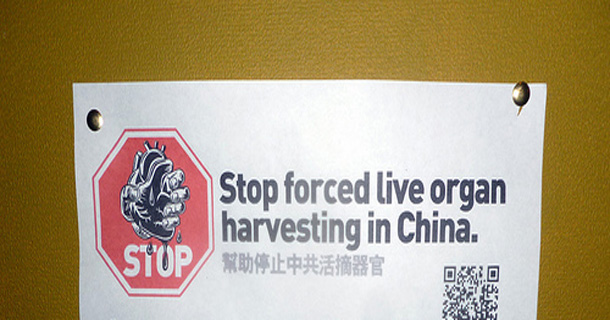 Human rights lawyers David Kilgour and David Matas have called on the Australian government to put pressure on China to end the practice of harvesting organs from prisoners of conscience. These prisoners include Falun Gong practitioners, Muslim Uighurs, Tibetan Buddhists and Christians. Visiting Australia’s Parliament House last week, Kilgour, a former Canadian Secretary of State for Asia-Pacific, and Matas, an expert in civil liberties, strove to persuade lawmakers to approve a motion condemning this practice. Meanwhile, 200 Falun Gong practitioners protested outside.
Human rights lawyers David Kilgour and David Matas have called on the Australian government to put pressure on China to end the practice of harvesting organs from prisoners of conscience. These prisoners include Falun Gong practitioners, Muslim Uighurs, Tibetan Buddhists and Christians. Visiting Australia’s Parliament House last week, Kilgour, a former Canadian Secretary of State for Asia-Pacific, and Matas, an expert in civil liberties, strove to persuade lawmakers to approve a motion condemning this practice. Meanwhile, 200 Falun Gong practitioners protested outside.
This is not the first time Matas and Kilgour have advocated to end organ harvesting. They first published a report on Chinese organ harvesting in 2006, estimating that the Chinese government harvests between 60,000-100,000 organs a year from political prisoners. This report became the basis of their 2009 book, Bloody Harvest: The Killing of the Falun Gong for their Organs. China maintains that the claims made in the book are entirely groundless, despite saying in 2012 that they planned to abolish the practice within the next three to five years – suggesting that they were indeed culpable.
In the report, Kilgour specifically critiques Australia’s scepticism of the practice, which he claims is the result of the “country’s close economic ties with China, its largest trading partner”. The Australian Health Department has said that at least 53 Australians travelled to China for organ transplants between 2001 and 2014.
These international calls on China to end organ harvesting are nothing new. In July 2014, the United States House Foreign Affairs Committee endorsed a resolution calling on China to immediately end the state-sanctioned harvesting of human organs from prisoners. In July of this year, the European Parliament passed a similar resolution, calling for an independent investigation of “persistent, credible reports on systematic, state-sanctioned organ harvesting from non-consenting prisoners of conscience”. Human rights activists have long campaigned for this practice to stop. Unverified claims about the Chinese black market in organ transplants have been around for years.
Falun Gong is a spiritual practice rooted in ancient Chinese culture with an estimated 70 million followers. In the 1990s practitioners in China were subject to police crackdowns and torture. According to the Falun Dafa Association of Washington DC, an estimated 40,000 to 65,000 Falun Gong practitioners have been killed to fuel China’s organ transplant industry.




 Print
Print Email
Email